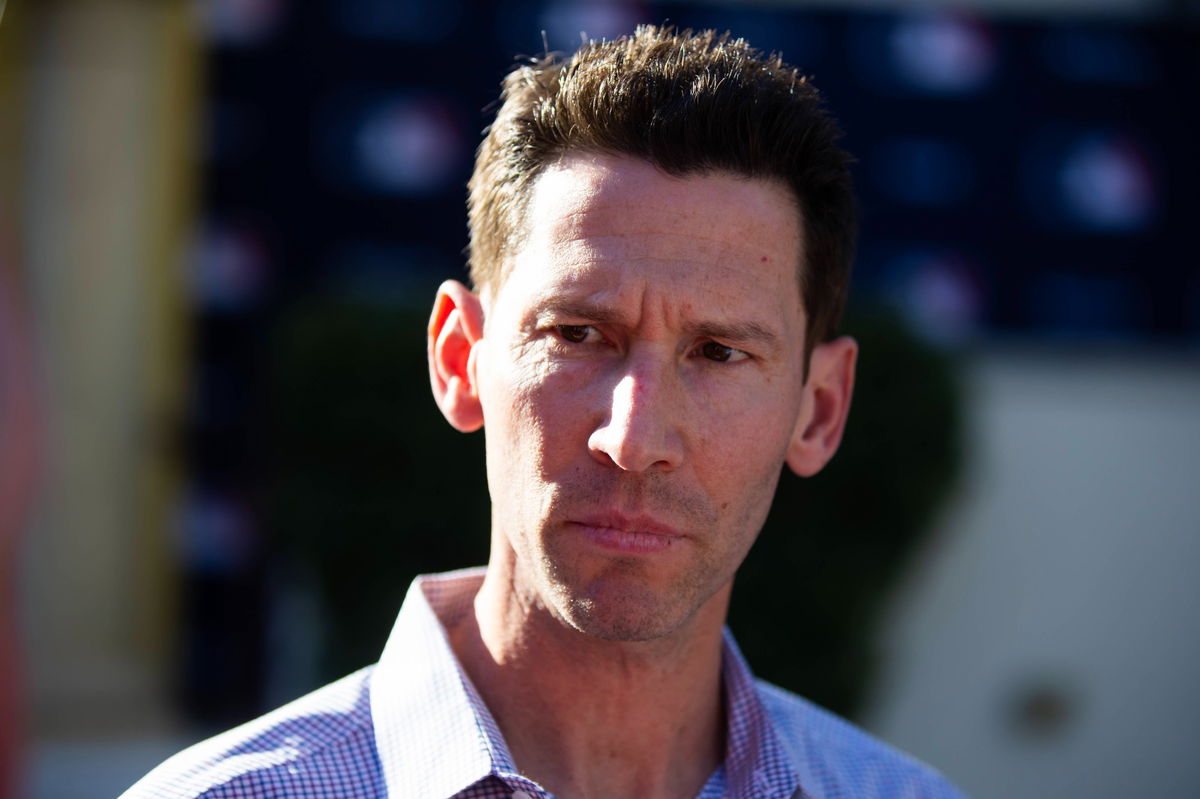
Imago
Credit: IMAGO

Imago
Credit: IMAGO
For a team that swears it’s all-in, the Boston Red Sox sure know how to underwhelm. While the Yankees and Blue Jays sprinted through the trade deadline with purpose, Boston shuffled in late like someone who forgot their wallet. Craig Breslow‘s front office once again mistook intention for execution. And as the Bronx roars and Toronto tightens its grip, Red Sox fans are left clapping for effort—again.
Watch What’s Trending Now!
Let’s be clear about one thing: the Boston Red Sox were the clear losers of the trade deadline. Yes, they are 2nd in the AL East standings, but that doesn’t mean that the other teams are not going to get back up. The Blue Jays made an impactful addition in Shane Bieber, and the Yankees have made some good additions, too. The Red Sox keep talking about the postseason, but this will not take them past September.
In a recent article by Jim Bowden, he talked about all the things that happened during the deadline, and most of them were related to the Red Sox. One of the points he talked about was which team did not live up to the expectations. He wrote, “The Red Sox. The front office publicly built up their trade deadline, but then didn’t make any trades to move the needle in their quest to beat out the Blue Jays and Yankees.”
The Blue Jays and Yankees pulled off some of the most impactful trades during the 2025 deadline. The Blue Jays acquired Shane Bieber, adding elite potential to their playoff rotation as division leaders. Meanwhile, the Yankees strengthened their bullpen by landing high‑leverage arms like David Bednar, Jake Bird, and Camilo Doval. That roster transformation allowed both teams to press their advantage in the AL East’s fierce playoff chase.
The Red Sox only added Steven Matz and Dustin May at the deadline, disappointing fans. Boston acquired left‑handed reliever Steven Matz from the Cardinals and righty Dustin May from the Dodgers. The front office reportedly pursued Joe Ryan and Merrill Kelly, but failed as other teams closed deals. As a result, Boston’s limited double pickup felt insufficient compared to rival gambles.
That restrained approach likely reflected confidence in Boston’s strong recent performance and farm strength. The Red Sox had built momentum with a top‑five farm ranking and hot play since June. Leaders expected modest upgrades would complement the team’s surge without depleting prospects. Yet fans saw those minor moves as missed opportunities amid competitors’ major trades.
The Boston Red Sox may call it strategy, but from the outside, it looked a lot like surrender. While the Yankees reload and the Blue Jays recalibrate for October, Boston chose to bet on vibes and Steven Matz. At some point, “we tried” stops being a plan and starts being a punchline. The postseason doesn’t grade on effort—and September doesn’t wait for excuses.
Did the Red Sox not trade? Or did the other teams not want to trade?
At some point, it’s not the market—it’s the messenger. Dealing with Craig Breslow’s Red Sox at the deadline felt less like negotiation and more like endurance training. While other teams found ways to get deals done, Boston’s front office managed to make aggressive interest sound like passive resistance. Maybe the phones were working just fine—until someone had to actually say yes.

USA Today via Reuters
MLB, Baseball Herren, USA Spring Training- Chicago Cubs-Workouts, Mar 12, 2022 Mesa, AZ, USA Chicago Cubs assistant general manager Craig Breslow arrives during a spring training workout at Sloan Park. Mandatory Credit: Joe Camporeale-USA TODAY Sports, 12.03.2022 09:02:29, 17880202, MLB, NPStrans, Craig Breslow, Sloan Park, Chicago Cubs PUBLICATIONxINxGERxSUIxAUTxONLY Copyright: xJoexCamporealex 17880202
When rival executives talk about Craig Breslow, it’s rarely with warmth or willingness to negotiate. According to USA Today’s Bob Nightengale, GMs around the league “hate dealing with the Red Sox,” with Breslow being the central obstacle. Deals reportedly fell apart for starters like Merrill Kelly and Joe Ryan, leaving Boston with underwhelming deadline scraps. In a market where speed and savvy are currency, Breslow seems to be paying in IOUs.
Inside the Boston Red Sox organization, the tension is just as thick, if not thicker. ESPN’s Jeff Passan reported a shrinking circle of trust and a growing rift between Breslow and the longtime staff. Analytical rigidity may win spreadsheets, but it rarely builds bridges when trust is fractured. As one insider ominously warned, “There are definitely turncoats internally plotting against Bres.”
This strategy—mistrust from rivals and distance within—won’t hold when the team hits turbulence. Clubs built on insularity rarely endure the storm when the waters turn rough and eyes start darting. Like Chaim Bloom before him, Breslow risks becoming a lone architect without laborers willing to build. And in October races, isolation rarely earns you more than a good seat at someone else’s parade.
At some point, even the best analytics can’t outmaneuver human friction and front-office frostbite. The Red Sox didn’t just lose out on players—they lost credibility in a league built on cooperation. When every phone call ends in polite confusion or flat rejection, maybe the system isn’t broken—maybe it’s just Breslow. If Boston’s front office keeps mistaking silence for strategy, October might arrive with nothing more than a well-sorted spreadsheet.

